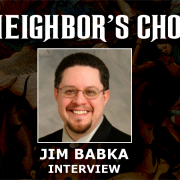Lost Highway – A Film Analysis
Lost Highway is a 1997 psychological thriller directed by David Lynch of Twin Peaks and Mulholland Drive fame. This movie, alongside Mulholland Drive, is known for being one of the hardest films to follow. There have been all kinds of speculation to its underlying meaning due to the lack of a grounded plot, but the themes that Lynch presents to us are quite apparent. In fact, Lost Highway has quite a lot to teach us about the cyclical nature of envy and violence, and how these evils are planted within our psyche.
We are straightaway introduced to the character of Fred Madison whose last name gives us a hint of what he is about to venture into. But why does he go mad and what is the nature of his madness? Deconstructing insanity is no safe task; it requires us to go into the mind of the insane subject ourselves. And so, David Lynch takes us through some uncomfortable scenes filled with violence, eroticism, and frightening imagery, the result of which is a surreal nightmarish landscape–a typical Lynch narrative.
Through the initial scenes of the movie, we come to know that Fred possesses some characteristics that are a precursor to insanity. The first sign is that Fred does not like video recordings. When asked why he despises video recordings, Fred answers that he “likes to remember things his own way, not necessarily the way they happened.” This is indicative that Fred is not particularly interested in objective reality or concrete truths, which are the prime foundations for reason and understanding. Not only is he not interested in truth but he despises truth, and we will see this coming back to haunt him again and again.
The second sign is that Fred does not trust his wife Renee; she doesn’t seem to have anything beyond platonic feelings for him. Fred Madison’s distrust of Renee eventually leads to jealousy and paranoia. He begins to question her whenever she is away or whenever she is with another person. Here, Lynch enters a character who resembles something like that of a ghoul–a character that will stalk Fred throughout the film.
In one of the film’s most bizarre scenes (and there are plenty), this mysterious, satanic character (portrayed by Robert Blake) walks up to Fred in the middle of a party and nonchalantly claims to have met him before. Fred is puzzled but the stranger insists, “You invited me. It is not my custom to go where I am not wanted.” Who is this Mystery Man that shows up suddenly to haunt Fred Madison?
It is perhaps not too far-reaching to assume that the creation of the Mystery Man has much to do with Lynch’s understanding of far-eastern philosophy, namely the aspects that center around desire. It’s highly likely that the Mystery Man, according to the heavily monist worldview of Lynch, is a manifestation of Fred’s ego. The Mystery Man frequently terrorizes Fred, often bringing him out of his illusory state and reminding him of who he is and what he must do, thus leading him to a state of “emptiness” through a reverse Bodhi of sorts.
It is worth noting here that Lynch is not consciously working from a Christian worldview, but it should be obvious to anyone that the Mystery Man is unmistakably Satan in the anthropological sense, not because he provides the truth (as it may seem from Lynch’s viewpoint) but because he acts as chief prosecutor and even co-conspirator in Fred Madison’s impending and atrocious crime. In a jealous rage, the cause of which seems to be Renee’s infidelity, Fred Madison brutally murders his wife. He is promptly arrested and sentenced to the electric chair.
While on death row, Fred Madison is in mental agony; he is unable to sleep. It is here that we slip into a kind of coping fantasy designed by Fred’s mind. As the fantasy progresses, we catch a glimpse of Fred’s deepest desires: cheerful friends, understanding parents, magical mechanical skills, a peaceful suburban home, and a faithful girlfriend. At first glance, we think Fred–now in the body of a young man named Pete–is wholly satisfied, but the fabric of this “all-American” dream (which Lynch seems to be poking at) evidently starts to tear.
All myths must have a hint of truth, and it turns out that Pete’s life has nothing in common with Fred’s. In an attempt to rectify this, Fred unconsciously constructs a much more pleasing and seductive version of his wife Renee. Here, we have to remember, once again, the cause of Fred’s crime, which is mimetic desire. It is precisely because Fred’s crime is uxoricide that Pete must have “Alice,” who turns out to be Renee’s double.
Alice shows up as a kind of femme fatale who honeytraps Pete into a dangerous situation which proves to be yet another tear in the fantasy of Fred Madison. The myth must not only have a hint of truth, it must also reflect the murder in some way. In the Christian worldview, the murder beneath ancient myths is showcased par excellence by the crucifixion of Christ. The Passion narrative, therefore, manages to short circuit humanity in such a way that it is no longer able to construct fantasies by which the murder remains hidden.
Lynch’s narrative achieves this to some effect but, due to the absence of a Christian-infected worldview, it fails to redeem the human person in any concrete way. Lynch’s vision of unity between creator and creation is ultimately cyclical as he compares the universe with the symbol of the Ouroboros–the serpent eating its own tail.1 This is why Fred’s further revision of his myth finally involves a murder, not of the wife but the wife’s lover.
In the climactic scenes of the movie, Fred’s fantasy fails to save him, exactly because the murder is exposed, and instead places him right back at the beginning of the story–the genesis of his paranoia, thus completing the circle of the serpent. He is stuck in a prison as the Mystery Man tells him at one point. The Mystery Man even expands, albeit chillingly, on the prison metaphor: “In the East, the Far East, when a person is sentenced to death, they’re sent to a place where they can’t escape, never knowing when an executioner may step up behind them, and fire a bullet into the back of their head.”
Fred’s fantasy is most certainly a prison–a state of Maya–that has trapped him. It is worth noting that the prison metaphor deals with contemporary society on multiple planes with its depiction of hedonism, infidelity, sadism, nefarious figures pulling the strings, murder, etc. It serves as an important tool, through the dual worlds of Zeus and Hades, to bring to light the American nightmare underneath the American dream. It brilliantly dissects the state of modern man and his futile existence in a post-Christian society.
All being said, Lost Highway is ultimately the film form of the Ouroboros–a reminder of how violence sustains societal order to a certain degree. The lack of any final say, however, might be the film’s unintentional moral message. The sheer demonic nature of the plot and the lack of redemption in any of the characters may remind us, above all, of its opposite: the protoevangelium, wherein God mentions that the seed of Eve would “crush the head of the serpent.”2
- https://www.wallpaper.com/guest-editor/david-lynch
- Genesis 3:15












With respect, I doubt I would be able to sit through the film. Therefore I am grateful for the review. I give the review:
🌟🌟🌟🌟.